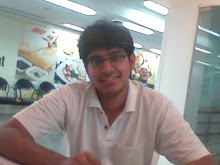Electronic dance music
It produced within a nightclub setting or in an environment that is centered upon dance based entertainment.The music is largely created for use by DJ's and is produced with the intention of being heard and enjoy.
Electronic dance music is a broad set of percussive music genres that largely inherit from the Electronic music of Kraftwerk and 1970s disco music. Such music was originally born of and popularized via regional nightclub scenes in the 1980s. By the early 1990s, the presence of electronic dance music in contemporary culture was noted widely and its role in society began to be explored in published historical, cultural and social science academic studies. It is constructed by means of electronic instruments such as synthesizers, drum machines and sequencers, and generally emphasizes the unique sounds of those instruments, even when mimicking traditional acoustic instrumentation. It sometimes encompasses music not primarily meant for dancing, but derived from the dance-oriented styles.
Electronic dance music is categorized by music journalists and fans alike as an ever-evolving plethora of named genres, styles and sub-styles. With many types of dance music, the number of beats per minute (BPM) helps define a separation between genres. The presence of vocals, live instrumentation vs synthetic instrumentation, and pattern of drum beats also help differentiate genres of electronic dance music. Some genres, such as techno, house, trance, electro, breakbeat, drum and bass are primarily intended to promote dancing. Others, such as IDM, glitch and trip hop, are more experimental and tend to be associated more with focused listening than dancing.
successful artists working under the "electronica" rubric such as Fatboy Slim, The Chemical Brothers, Groove Armada, Basement Jaxx, Daft Punk, The Crystal Method, Massive Attack, The Prodigy, Orbital, Propellerheads, Underworld and Moby continue to release albums and perform regularly (sometimes in stadium-sized arenas, such has the popularity of electronic dance music grown). Some DJs such as Paul van Dyk, Paul Oakenfold, ATB, John Digweed, Sasha, David Guetta, Armin van Buuren, Ferry Corsten and Tijs Verwest (aka Tiësto) have reached true superstar status, can command five-figure salaries for a single performance and regularly perform for hours on end. Some DJs have world wide radio, and internet broadcasted shows that air weekly, such as VONYC Sessions, a show mixed by Paul Van Dyk, A State of Trance, a show mixed by Armin van Buuren.
my info:http://www.djtechtools.com/
Subscribe to:
Comments (Atom)

